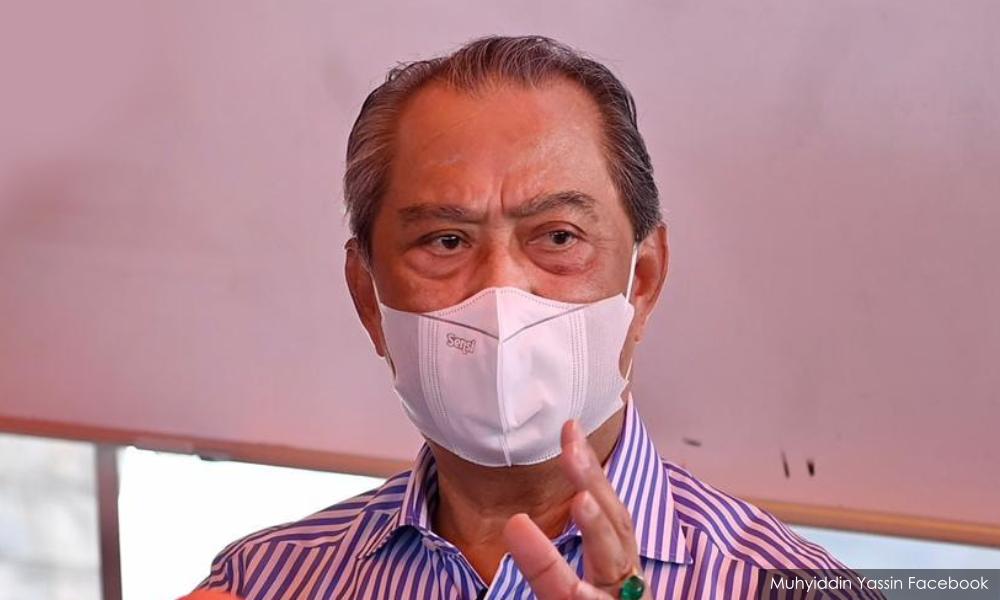COMMENT | Parliament last convened from Nov 2 to Dec 17 last year. After a break of some seven months - during which an emergency was declared, Parliament was suspended, and Covid-19 infections and deaths spiralled out of control - Parliament will finally reconvene tomorrow.
This will be a special sitting over five days, to be followed by two separate meetings of a new session, beginning Sept 6 (for 15 days) and Oct 25 (for 32 days).
This came after the Yang di-Pertuan Agong decreed on June 16 that Parliament should reconvene as soon as possible to debate the proclamation of emergency, the emergency ordinances, and the National Recovery Plan. The call was reiterated on June 29. In mid-June, the Conference of Rulers also decreed that the emergency should not be extended beyond Aug 1.
The government finally conceded. The prime minister’s statement announcing the July parliamentary meeting stated, “Based on Article 150(3) of the Federal Constitution, all emergency proclamations and ordinances made by His Majesty shall be laid before both Houses of Parliament.”
Thus, independent observers reasonably expect the Parliament to debate the proclamation on emergency and any ordinance made thereunder once Parliament re-opens. Voting should take place to approve or annul the emergency. This is supported by Article 150(3) of the Federal Constitution, which requires that:
(3) A proclamation of emergency and any ordinance promulgated under Clause (2B) shall be laid before both Houses of Parliament and, if not sooner revoked, shall cease to have effect if resolutions are passed by both Houses annulling such proclamation or ordinance, but without prejudice to anything previously done by virtue thereof or to the power of the Yang di-Pertuan Agong to issue a new proclamation under Clause (1) or promulgate any ordinance under Clause (2B).
However, the government has different ideas. When the agenda for parliamentary business was released, it only allocated time for “statements by ministers”.
Under the Dewan Rakyat’s Standing Orders, the government decides on the order of business. The government’s business takes precedence over other issues. Rather than tabling the proclamation of emergency and the ordinances as motions for them to be debated and voted upon, the government is instead opting to, essentially, “brief” the Parliament. The briefings will be for the entire duration of the sitting’s five days.
Because there is no voting at the sitting, Parliament cannot decide if the emergency should remain in force or be revoked. Effectively, the government is forcing a status quo. The manoeuvre of using the Standing Orders contravenes the spirit of Article 150(3), which acts as a safeguard, providing Parliament with a supervisory function over the government’s emergency powers.
The Standing Orders were made under Article 62(1) of the Constitution which regulates parliamentary procedure, stating that: “Subject to the provisions of this Constitution and of federal law, each House of Parliament shall regulate its own procedure.”
Article 62(1) clearly subjects the Standing Orders to the Constitution. The Orders cannot be read to disable Parliament from exercising its functions set out in the Federal Constitution. On this basis, the government’s use of the Standing Orders, to prevent Parliament from carrying out its functions under Article 150(3), is patently unconstitutional.
In most cases, there is little dispute between Parliament and the government of the day because the latter controls the former with majority support. It is a flaw in the design of the Westminster system that Parliament merely acts as a “rubber stamp” of the government.
Presently, however, majority support for the prime minister is in question, and Parliament could very well disapprove of the emergency.

The present political climate differs from previous ones where states of emergency were called by governments that enjoyed clear majority support in Parliament.
In 1964, Tunku Abdul Rahman moved a motion to seek Parliament’s support for the emergency called in the wake of the Konfrontasi with Indonesia. Tun Abdul Razak moved a bill in 1966 on the emergency in Sarawak to test parliamentary support for the same. Likewise, this was done in 1977 by Tun Hussein Onn on the Kelantan emergency. Never in our history has a prime minister circumvented the parliamentary scrutiny safeguards under Article 150.
In conclusion, the government’s refusal or neglect to allow Parliament to vote on the emergency not only frustrates the Parliament’s constitutional duty under Article 150(3), it also commits fraud on Parliament. The abuse of the Standing Orders is disingenuous and manifests, yet again, how specific practices in the name of rules can trump the Federal Constitution.
NEW SIN YEW is a lawyer.
The views expressed here are those of the author/contributor and do not necessarily represent the views of Malaysiakini.

